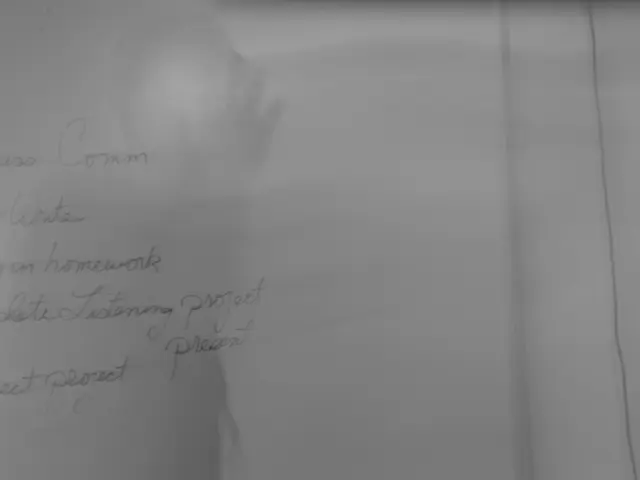Struggling Economic Landscape of Venezuela in Brief
Struggling to decipher the secrets of Venezuela's economic woes? Our latest video sheds some light on the key factors driving the nation's economic chaos and potential ways out.
From oil dependency to hyperinflation, political instability, and corruption, the Venezuelan economy has been battered by a conglomeration of challenges. Here's a snapshot of the underlying factors affecting this Caribbean nation's economic destitution.
The root cause of Venezuela's economic turmoil stems from a complex web of factors that have snowballed over more than a decade, including:
- Overlooked Oil Dependence: Prior to 2017, oil exports made up about 95% of Venezuela's export earnings. Under Hugo Chavez, oil revenue was plowed into social programs, but this dependence intensified as oil exports climbed to almost 98% of the country's total exports by 2013. With global oil prices plummeting in 2014, Venezuela's economy took a drastic nosedive as alternative revenue streams were scarce.
- Economic Mismanagement and Corruption: Chavez's government squandered the state-owned oil company PDVSA, turning it into a corrupt and inefficient institution controlled by political cronies rather than skilled technicians. This mismanagement crippled productivity and income generation. Excessive money printing and price controls under Maduro, Chavez's successor, ignited hyperinflation and scarcity of crucial goods.
- Runaway Inflation: Unending money printing to bridge budget deficits and sustain social expenditures amid falling oil revenues sparked a hyperinflation crisis, peaking at 63,000% in 2018, causing severe food, medicine, and other essentials shortages, pushing numerous Venezuelans into poverty and exodus.
- International Embargoes: Since 2017, US-led sanctions have crippled Venezuela's oil industry and foreign financial transactions, costing the country an estimated loss of 213% of its GDP from 2017 to 2024 (approximately $226 billion) in oil revenues. These sanctions have further exacerbated the crisis by limiting government's access to dollars and intensifying inflation.
- Political Unrest and Electoral Fraud: Maduro's disputed re-election in 2018 and questionable electoral practices eroded trust in the government and stifled investor confidence, making credible economic reforms and international assistance less likely.
To resurrect Venezuela's economy, it calls for extensive reforms, political will, and external cooperation:
- Diversification: Aiming to diminish the economy's overreliance on oil, the development of other sectors, such as agriculture and manufacturing, could generate novel, enduring revenue sources and employment opportunities.
- Professionalizing Institutions: Refurbishing and enhancing PDVSA and other state institutions to improve their efficiency, transparency, and accountability would strengthen oil production and government revenue.
- Cash Control: Putting a stop to hyperinflation by adhering to conservative fiscal policy, cutting down money printing, and possibly adopting a stable foreign currency or currency board arrangement could help restore confidence in the currency.
- Easing or Removing Sanctions: Negotiating with the United States and other nations to phase out sanctions contingent on democratic reforms and electoral integrity could expand access to global markets, investments, and oil revenues.
- Political Dialogue: Ensuring free and fair elections with international oversight and fostering open discussions among political factions could bolster governance and generate the policy changes needed for economic growth.
- Outside Assistance: Inviting humanitarian aid and technical assistance from international organizations and friendly countries could help alleviate shortages and support economic reforms.
In a nutshell, Venezuela's economic collapse stemmed from oil dependence, mismanagement, hyperinflation, sanctions, and political tumult. Restoring the nation's economic stability demands wide-ranging reforms, resolute political commitment, and global partnership.
- The economic misery in Venezuela, rooted in a complex web of factors, is partly attributed to the dependence on the oil industry for finance and business, making the economy highly vulnerable when global oil prices plummeted.
- To stimulate recovery, it's crucial to take extensive measures, such as diversifying the business sectors beyond oil, professionalizing institutions like PDVSA for improved efficiency, and adopting conservative fiscal policies to curb hyperinflation, which would help attract finance and investment from outside sources.







